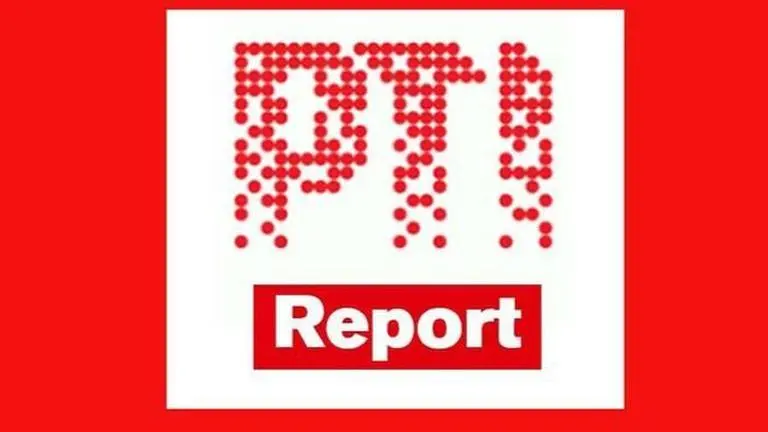Updated 4 April 2021 at 07:00 IST
Singapore joining Interpol-led crime task force to look into COVID-19-related scams
Singapore is joining an Interpol-led global financial crime task force, comprising the US and UK, which will be looking into a number of areas, including COVID-19-related scams, according to a media report on Sunday.
- World News
- 5 min read

Singapore is joining an Interpol-led global financial crime task force, comprising the US and UK, which will be looking into a number of areas, including COVID-19-related scams, according to a media report on Sunday. The Ministry of Home Affairs (MHA) said Singapore is joining the task force due to a need for greater international cooperation against the rising threat of cyber fraud globally, Channel News Asia (CNA) reported.
“The situation has visibly worsened during the COVID-19 pandemic with more people working from home and transacting online,” an MHA spokesperson said in response to queries from the CNA. “Cyber criminals have taken advantage of this opportunity,” the spokesperson said.
The task force has three "clear priorities" to start with, Interpol director of cybercrime Craig Jones told the CNA at its global complex for innovation in Singapore. This is the base from which the world police body fights cybercrime internationally. The task force, initially comprising Singapore, the United States, UK and Ireland, will look at illicit money flows in transnational financial crimes and how countries can combat these crimes more effectively.
“The second one is looking at the counterfeiting or the facilitating of the (COVID-19) vaccines, whether it's online or is the vaccines actually being shipped out,” said Jones, who will be leading the task force.
This comes as Interpol has seen an increasing trend of online COVID-19 vaccine scams as countries roll out their vaccination programmes, with the networks conducting these scams having possible financial links in Singapore and other major financial hubs, according to the Channel report. “There is nowhere to go online to buy a vaccine at the moment. People need to understand this,” Jones was quoted as saying in the report.
Advertisement
“But again, what the criminals are then preying on is the vulnerability of communities – that fear, effectively. But also using the technology as well in order to carry out those crimes,” Jones said. Interpol said in a news release on March 24 that cyber criminals have set up illicit websites claiming to be legitimate national or world organisations offering pre-orders for COVID-19 vaccines. These websites offer to get payment in Bitcoin and other processing methods.
“Using trademark logos of major pharmaceutical companies producing approved COVID-19 vaccines, the fake websites are suspected of being used to conduct phishing attacks and dupe victims into giving charitable donations,” Interpol said. “In addition to opening up their computer to cyberattacks when attempting to purchase alleged COVID-19 vaccines online, people also run the risk of having their identity stolen,” it said.
Advertisement
Interpol secretary-general Jurgen Stock said in a statement that the networks behind these crimes have “global ambitions”. “Interpol is assisting law enforcement around the world to both identify criminal networks and to dismantle them,” he said. The world police body will also organise a global virtual meeting with its member countries to discuss the threats and disruption methods in this area.
Interpol announced on March 3 that South African authorities had seized hundreds of fake COVID-19 vaccines following an Interpol global alert warning that vaccines would be a prime target for criminal networks. In China, police successfully identified a network selling counterfeit COVID-19 vaccines, raided its manufacturing premises and arrested about 80 suspects. More than 3,000 fake vaccines were seized at the scene, Interpol said.
When asked if this transnational network selling fake COVID-19 vaccines had any links to Singapore, Jones said, “There's links everywhere.” “The links are there. So, what we see specifically sometimes is where the money flows. The criminals will look at any infrastructure that is able to facilitate those money movements,” he added.
“So, there are a number of different links on our operations to countries that either have those financial centres as well,” he said. Singapore’s Ministry of Health has said it is aware of scam sites falsely claiming to offer registration for COVID-19 vaccination, while the police had in February warned the public against “falling prey” to these vaccine scams.
The public should be wary of COVID-19 vaccination text messages that come with an unofficial URL, or those that request for payment to get early access to the vaccines, the police advised. Besides COVID-19 vaccine scams, Jones said the task force will also look into business email compromise scams, and identify criminals who exploit government schemes that have been set up to support businesses during the pandemic.
“So we’re working with those countries directly at the moment, trying to understand what is that threat picture,” Jones said, adding that Interpol will bring in more pilot countries in the coming months.
Singapore has made a “strong commitment” to contribute extra staff to Interpol on short-term secondments, according to Jones. The MHA spokesperson said the task force’s purpose is to create a global anti-scam network, linking law enforcement operational units across the world to share intelligence, insights and best practices, as well as to coordinate operations effectively. As a founding member of the task force, Singapore will share its own insights from the setting up of its national Anti-Scam Centre, the spokesperson said.
Published By : Press Trust Of India
Published On: 4 April 2021 at 07:00 IST
